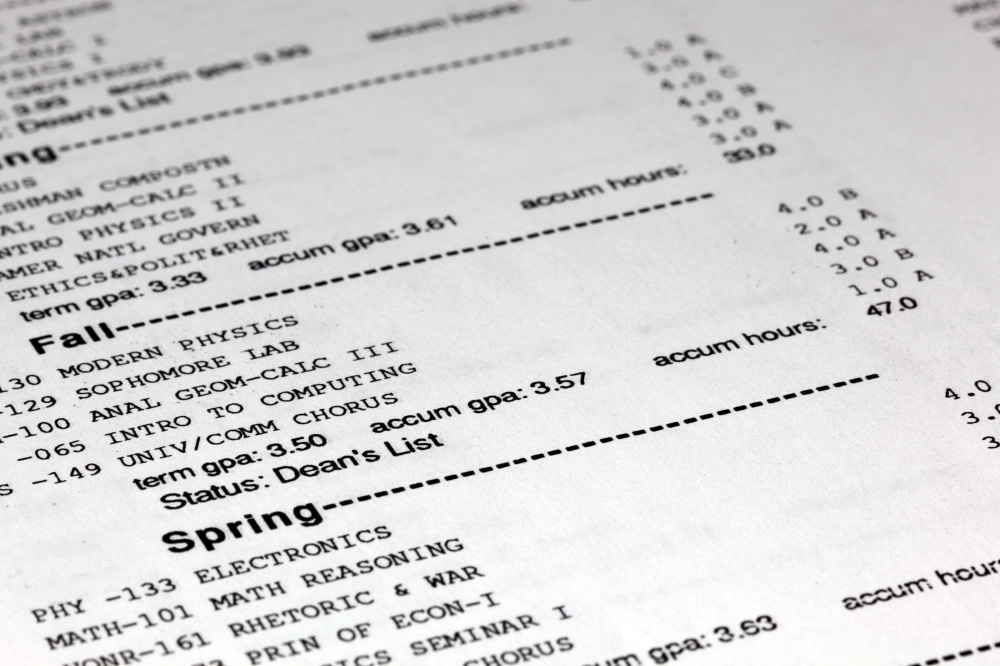盡管美國經濟開始復蘇,但疫情的打擊仍會長期存在。2020 年,美國GDP下降了3.5%,雖然據預計,今年的GDP將恢復增長,但在未來的兩年內,大流行給GDP帶來的損失預計仍將有3.2至4.8萬億美元。
美國的經濟復蘇將以其強大的創造力和人才儲備為基礎——尤其是美國年輕人的潛力。現在正在大學校園里的這一代人終將重新審視這個世界,以全新的眼光看待以往的舊問題。明日的繁榮有賴于創新,而這正是這一代人提供的。
然而,不幸的是,一些大學的現行政策阻礙了畢業生的職業發展,迫使他們不得不從事低薪工作,而且阻礙了這些學生——或他們的國家——從多年的寒窗苦讀中受益。而且,但凡這些畢業生能夠找到薪水更高的工作,他們就能夠還清債務。

在許多州,大學正在強制要求扣押尚未還清債務的畢業生的成績單——而這些債務通常只是微不足道的一點錢。這些政策可能會影響美國約660萬學生,阻礙他們職業生涯的起點,并可能給他們帶來終身的影響。
今年的本科生入學率下降了4.4%,疫情使美國許多大學面臨嚴重的財務壓力。據預計,即使是亞利桑那大學這樣享有盛譽的州立學府,也將損失2.5億美元的收入,總體而言,估計20%的文理學院(約200所)可能會倒閉。
大學急于填平他們的賬單是可以理解的。但扣留成績單的做法最終會傷害到所有與之相關的人:畢業生、他們的大學,以及更廣泛的社會經濟。
大學不必免除學生們的債務。但是,考慮到學生們經歷的這糟糕一年,如果高校能停止這種不近人情的做法,表現出對苦苦掙扎的學生們的仁慈體諒,這將是多么美好的一幕。當 37% 的美國大學生在去年連飯都吃不起,近三分之一的人因疫情被解雇時,高校還指望學生們在畢業之前償還所有剩余債務是不現實的。
美國的經濟社會也要對此付出沉重的代價——可以說是毀滅性的機會成本。此時,我們應該抓住每一個機會來推動經濟的復蘇。根據一項研究,在過去十年中,本科畢業生人數只要每增長1%,就會使美國的GDP增加1300億美元。
在當下社會,有能力的畢業生正處于短缺狀態,這也就意味著大學扣下他們的成績單的時候,正是經濟的至暗時刻。在美國,只有37%的人擁有學士學位或更高的學歷——對一個日益以服務和技術為中心的經濟體來說,這實在是太少了。
扣留成績單是高等教育在學費、學生債務等方面出現更大危機的征兆。目前,僅美國就有300 萬人背負著超過100,000美元的學生債務,全國學生債務總額現在達到1.7萬億美元——這是僅次于房貸的第二大消費債務。超過三分之一的美國學生認為,他們永遠都還不清。
雖然這個問題亟需解決,但它需要的是結構性、系統性的補救措施,而不是單邊制裁。美國的一些州,包括華盛頓州和加利福尼亞州,已經通過相關法案,禁止學校扣留學生成績單。但在這方面維護社會公正最簡單的方法是制定聯邦法律,禁止這類措施。
扣留成績單,就是扣留年輕人為經濟注入活力的命脈——現在絕非能這樣做的時候。歷史會善待那些明事理的大學——他們知道無論經濟壓力如何、都不能失去大學生的貢獻。過去的一年已把這一代人的希望、計劃和夢想無限推遲,再為他們設置更多障礙,似乎太不公平。(財富中文網)
作者Dan Rosensweig系教育網站Chegg的首席執行官兼總裁。
編譯:陳聰聰
盡管美國經濟開始復蘇,但疫情的打擊仍會長期存在。2020 年,美國GDP下降了3.5%,雖然據預計,今年的GDP將恢復增長,但在未來的兩年內,大流行給GDP帶來的損失預計仍將有3.2至4.8萬億美元。
美國的經濟復蘇將以其強大的創造力和人才儲備為基礎——尤其是美國年輕人的潛力。現在正在大學校園里的這一代人終將重新審視這個世界,以全新的眼光看待以往的舊問題。明日的繁榮有賴于創新,而這正是這一代人提供的。
然而,不幸的是,一些大學的現行政策阻礙了畢業生的職業發展,迫使他們不得不從事低薪工作,而且阻礙了這些學生——或他們的國家——從多年的寒窗苦讀中受益。而且,但凡這些畢業生能夠找到薪水更高的工作,他們就能夠還清債務。
在許多州,大學正在強制要求扣押尚未還清債務的畢業生的成績單——而這些債務通常只是微不足道的一點錢。這些政策可能會影響美國約660萬學生,阻礙他們職業生涯的起點,并可能給他們帶來終身的影響。
今年的本科生入學率下降了4.4%,疫情使美國許多大學面臨嚴重的財務壓力。據預計,即使是亞利桑那大學這樣享有盛譽的州立學府,也將損失2.5億美元的收入,總體而言,估計20%的文理學院(約200所)可能會倒閉。
大學急于填平他們的賬單是可以理解的。但扣留成績單的做法最終會傷害到所有與之相關的人:畢業生、他們的大學,以及更廣泛的社會經濟。
大學不必免除學生們的債務。但是,考慮到學生們經歷的這糟糕一年,如果高校能停止這種不近人情的做法,表現出對苦苦掙扎的學生們的仁慈體諒,這將是多么美好的一幕。當 37% 的美國大學生在去年連飯都吃不起,近三分之一的人因疫情被解雇時,高校還指望學生們在畢業之前償還所有剩余債務是不現實的。
美國的經濟社會也要對此付出沉重的代價——可以說是毀滅性的機會成本。此時,我們應該抓住每一個機會來推動經濟的復蘇。根據一項研究,在過去十年中,本科畢業生人數只要每增長1%,就會使美國的GDP增加1300億美元。
在當下社會,有能力的畢業生正處于短缺狀態,這也就意味著大學扣下他們的成績單的時候,正是經濟的至暗時刻。在美國,只有37%的人擁有學士學位或更高的學歷——對一個日益以服務和技術為中心的經濟體來說,這實在是太少了。
扣留成績單是高等教育在學費、學生債務等方面出現更大危機的征兆。目前,僅美國就有300 萬人背負著超過100,000美元的學生債務,全國學生債務總額現在達到1.7萬億美元——這是僅次于房貸的第二大消費債務。超過三分之一的美國學生認為,他們永遠都還不清。
雖然這個問題亟需解決,但它需要的是結構性、系統性的補救措施,而不是單邊制裁。美國的一些州,包括華盛頓州和加利福尼亞州,已經通過相關法案,禁止學校扣留學生成績單。但在這方面維護社會公正最簡單的方法是制定聯邦法律,禁止這類措施。
扣留成績單,就是扣留年輕人為經濟注入活力的命脈——現在絕非能這樣做的時候。歷史會善待那些明事理的大學——他們知道無論經濟壓力如何、都不能失去大學生的貢獻。過去的一年已把這一代人的希望、計劃和夢想無限推遲,再為他們設置更多障礙,似乎太不公平。(財富中文網)
作者Dan Rosensweig系教育網站Chegg的首席執行官兼總裁。
編譯:陳聰聰
Although the U.S. economy is beginning to bounce back, we will be dealing with the blow struck by COVID-19 for a long time. During 2020, U.S. GDP fell by 3.5%, and although growth is predicted to return this year, the pandemic could still result in an estimated $3.2 to $4.8 trillion GDP loss over the next two years.
Our country’s economic recovery will depend on harnessing its deep natural reserves of creativity and talent—especially the potential of our young people. It is the generation now at college who will ultimately rethink the world, come to old problems with fresh eyes, and create the innovations on which tomorrow’s prosperity will depend.
Unfortunately, however, some universities are pursuing policies that are putting the brakes on the careers of graduates, forcing them into low-paid jobs that don’t allow them—or their country—to benefit from their years of hard study. And, if these same graduates were able to get better-paying jobs, they'd be able to pay off their debt.
In many states, colleges are enforcing the practice of withholding the transcripts of graduates who have any remaining debt to the college—often for marginal amounts. These policies may be affecting around 6.6 million students in the U.S., hampering them at the starting gate of their careers and potentially affecting them for life.
With undergraduate enrollments down 4.4% this year, COVID-19 has put many American universities under severe financial pressure. Even prestigious statewide institutions such as the University of Arizona are projecting a $250 million revenue loss, and overall, it is estimated that 20% of liberal arts colleges (around 200 institutions) could go out of business.
It’s understandable that universities are anxious to balance their books. But the practice of withholding transcripts ultimately harms everyone involved: graduates, their universities, and the wider economy.
Colleges don’t have to forgive the debt. But, given the awful year students have gone through, what a wonderful time it would be for colleges to show some sensitivity to the student struggle by stopping this terrible practice. When 37% of U.S. college students struggled to afford food over the last year, and nearly one-third were laid off from their jobs due to the pandemic, it is simply unrealistic for universities to expect all remaining debt to be paid before graduates have begun earning.
The opportunity cost for the U.S. economy and society is devastating, at a time we should be using every opportunity to fuel our recovery. According to one study, a growth of just 1% in the number of bachelor’s graduates over the last decade would have boosted U.S. GDP by $130 billion.
And the existing shortage of skilled graduates means we are withholding transcripts at a time when the economy can least cope with it. In the U.S., just 37% of people have a bachelor’s degree or higher qualification—far too few for an increasingly services- and tech-focused economy.
Withholding transcripts is symptomatic of the wider crisis in higher education around tuition and student debt. Currently, 3 million people in the U.S. owe more than $100,000 in student debt alone, and total student debt nationally is now at $1.7 trillion—the second largest form of consumer debt behind mortgages. Over a third of U.S. students don’t believe they’ll ever pay theirs off.
While this problem cries out for solutions, they need to be structural, systemwide remedies rather than unilateral sanctions. Some states, including Washington and California, have passed laws that ban transcript withholding. But the simplest way to restore fairness is to enact a federal law prohibiting these measures.
Now is not the time to withhold the lifeblood that young people can bring to the economy. History will look kindly on those colleges that understand, whatever the financial pressures, that we can’t afford to lose the contributions of college students. And it seems particularly unfair to place further barriers in front of a generation that, over the last year, has already seen its hopes, plans, and dreams indefinitely deferred.
Dan Rosensweig is the CEO and president of Chegg.






